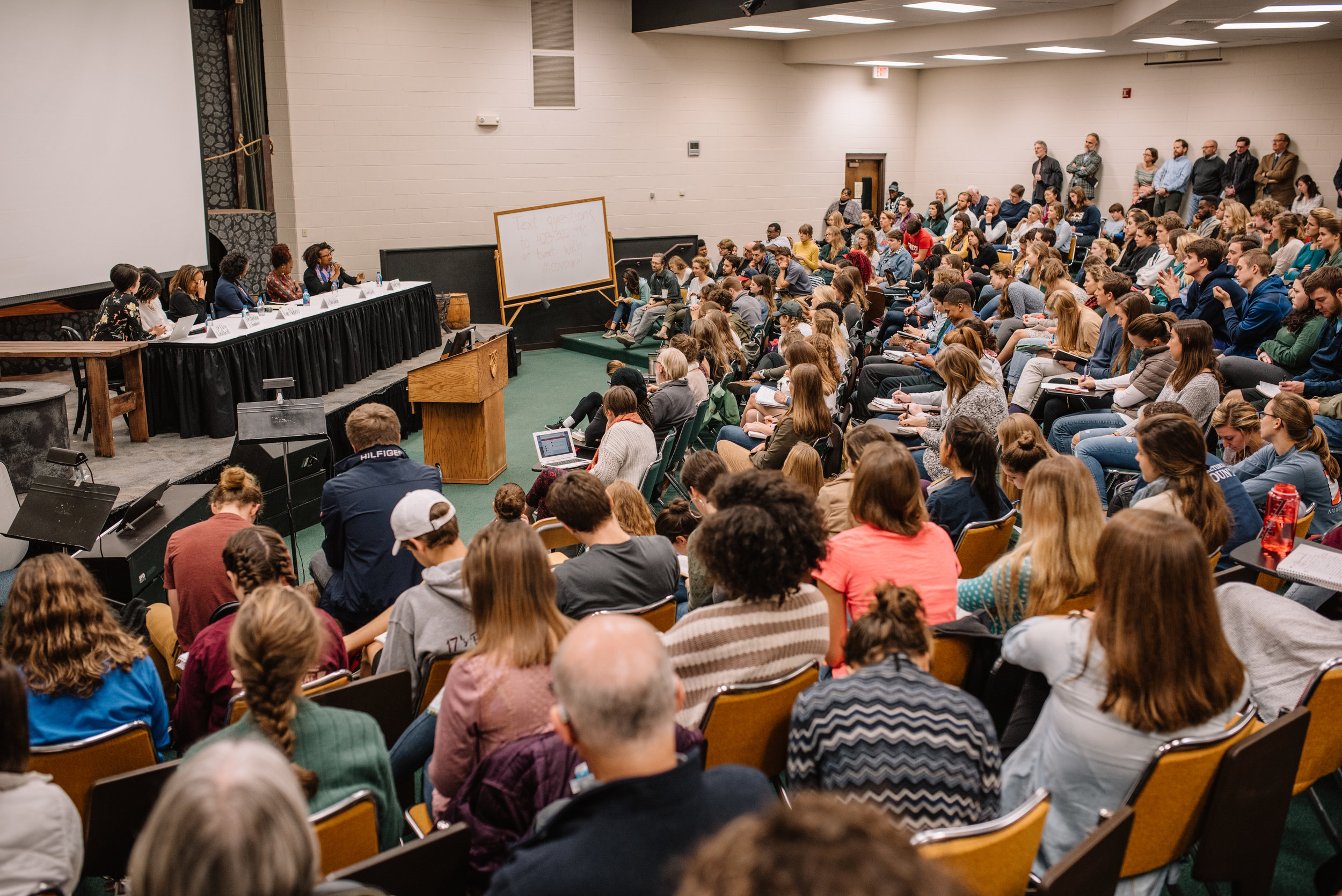
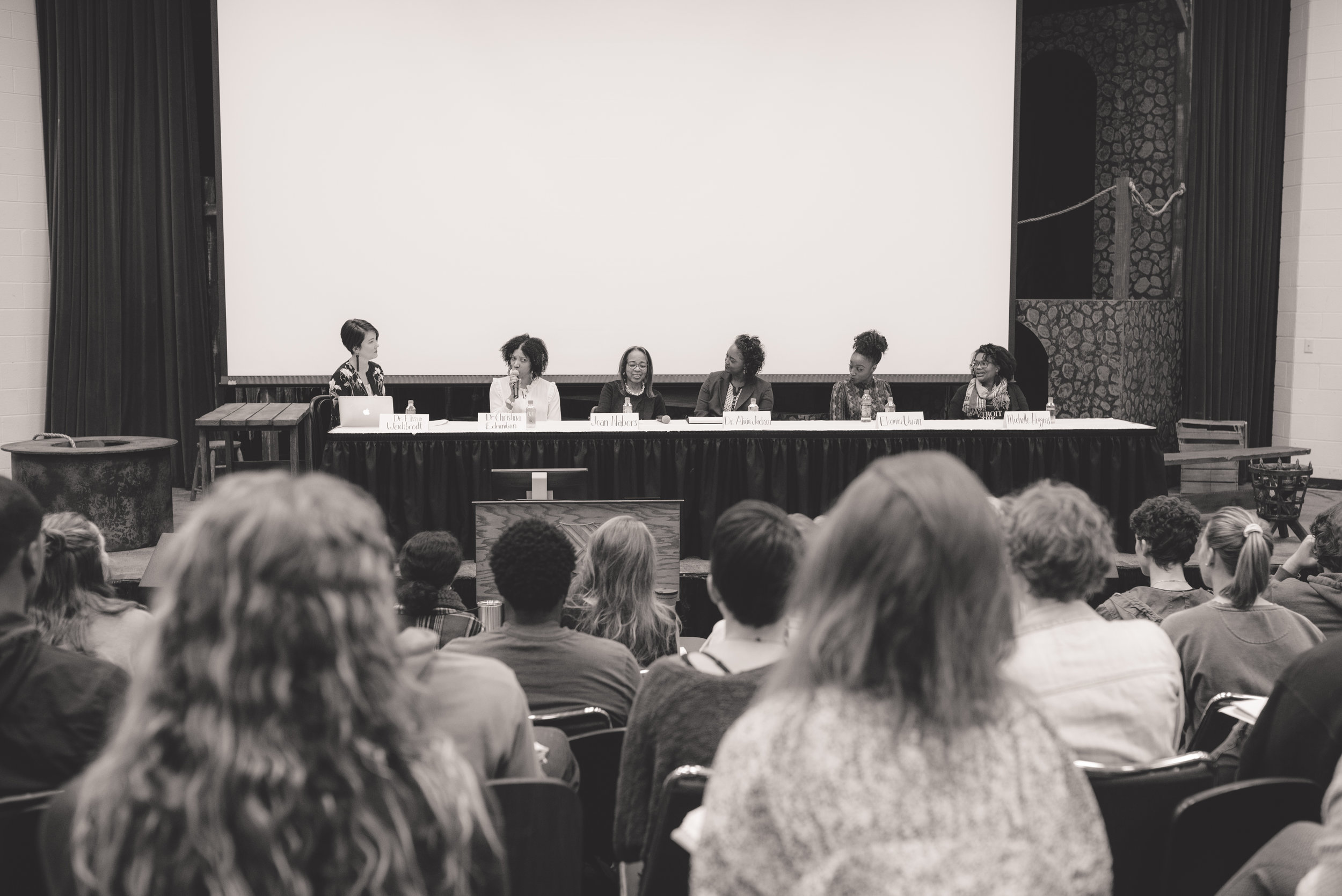
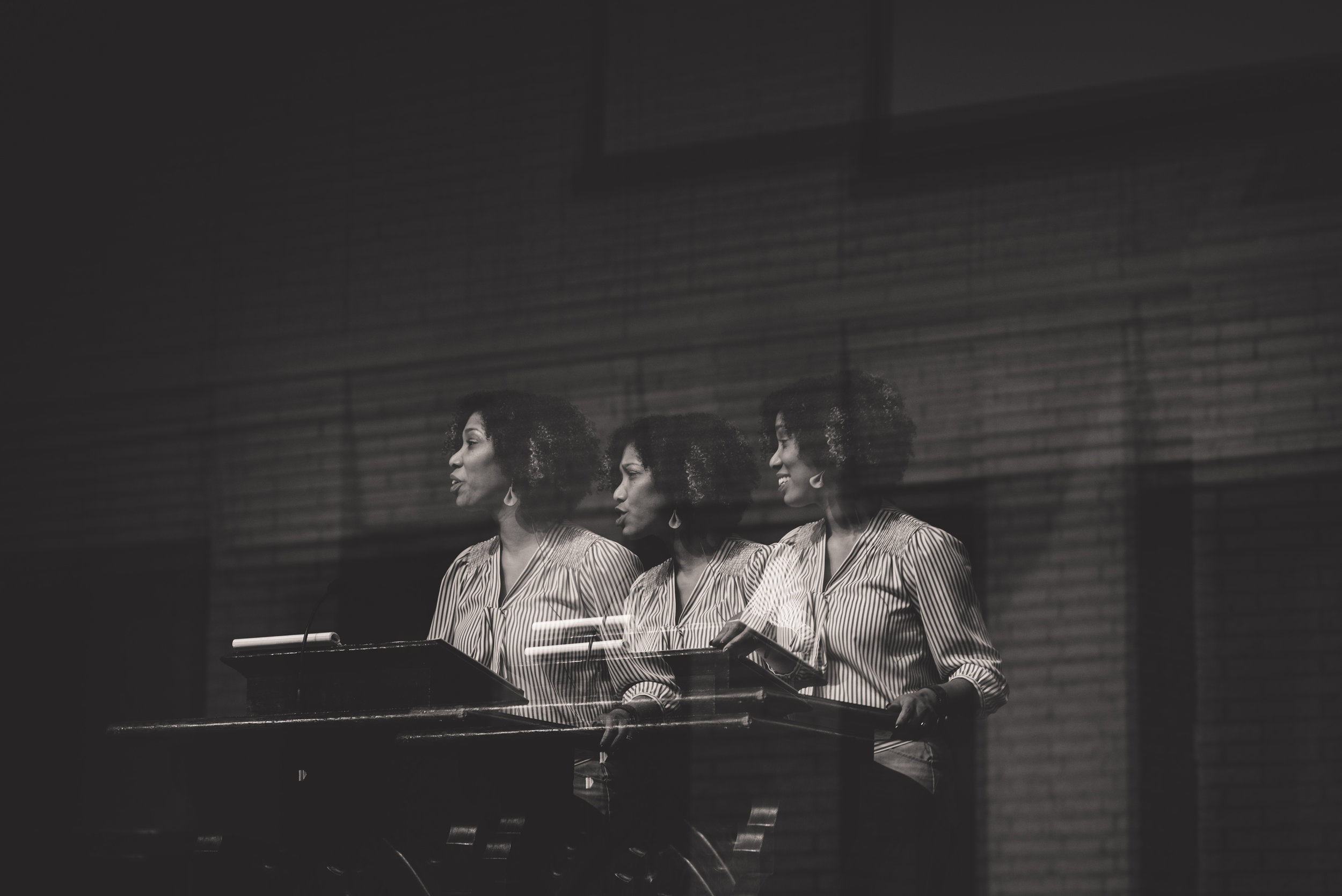
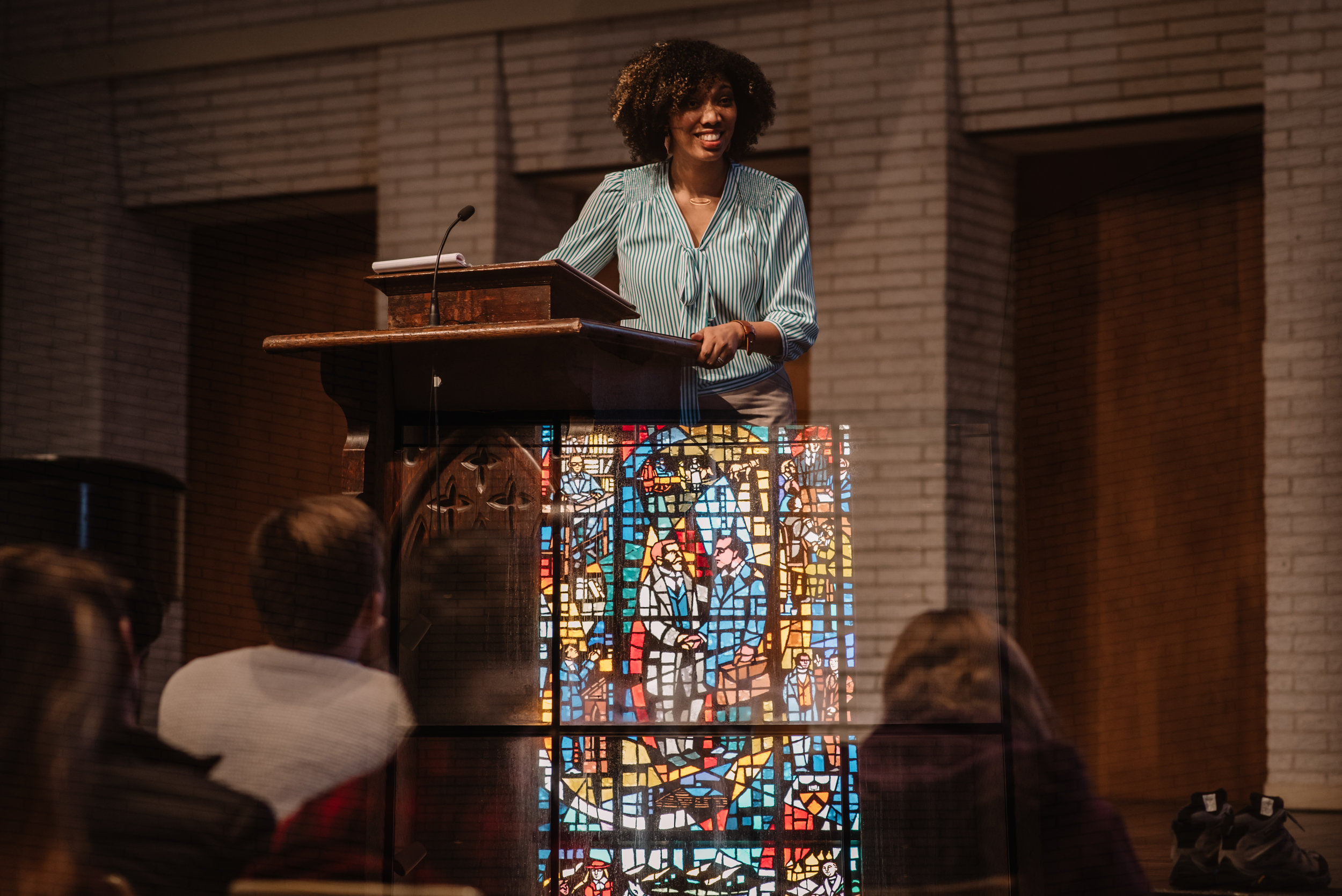
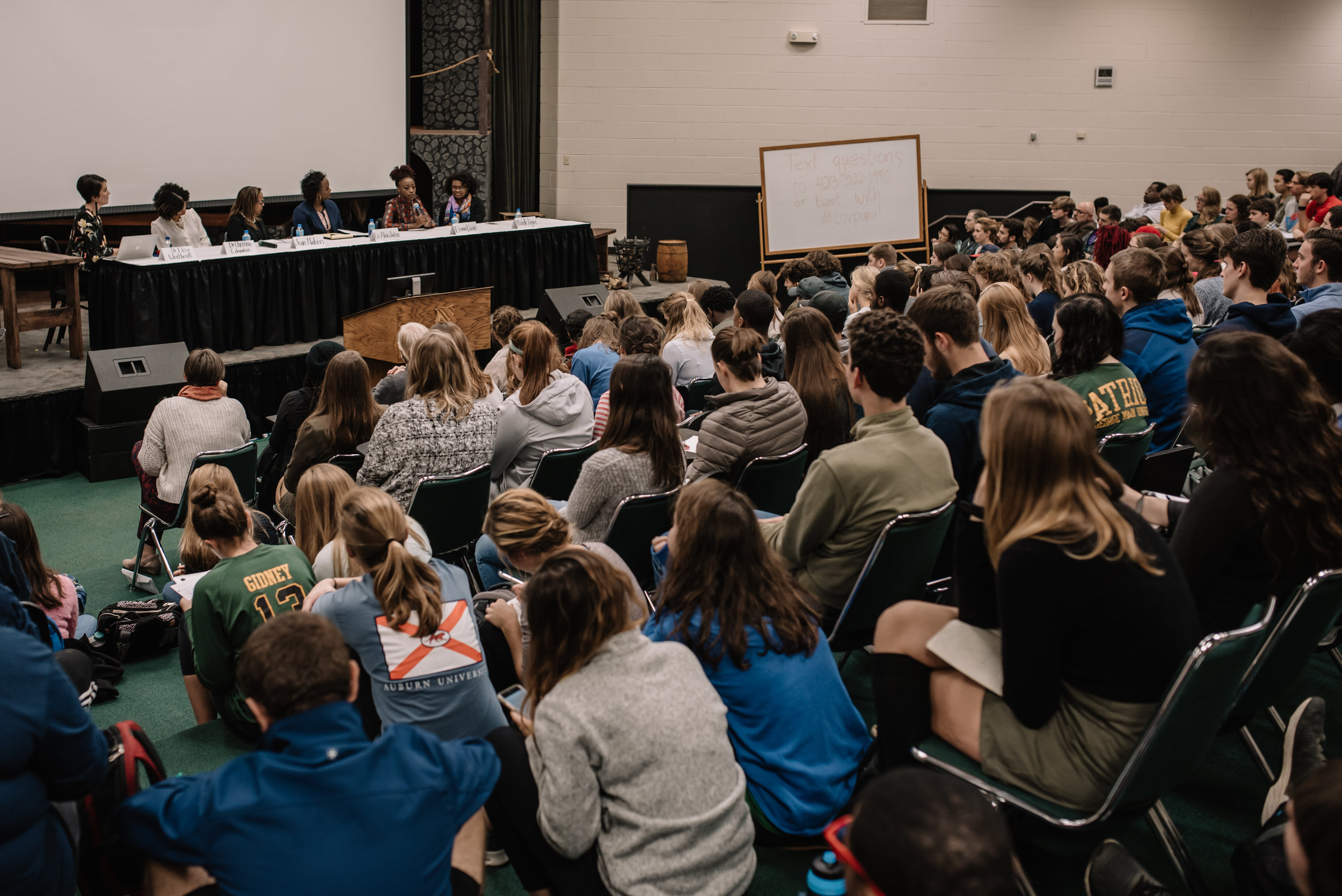
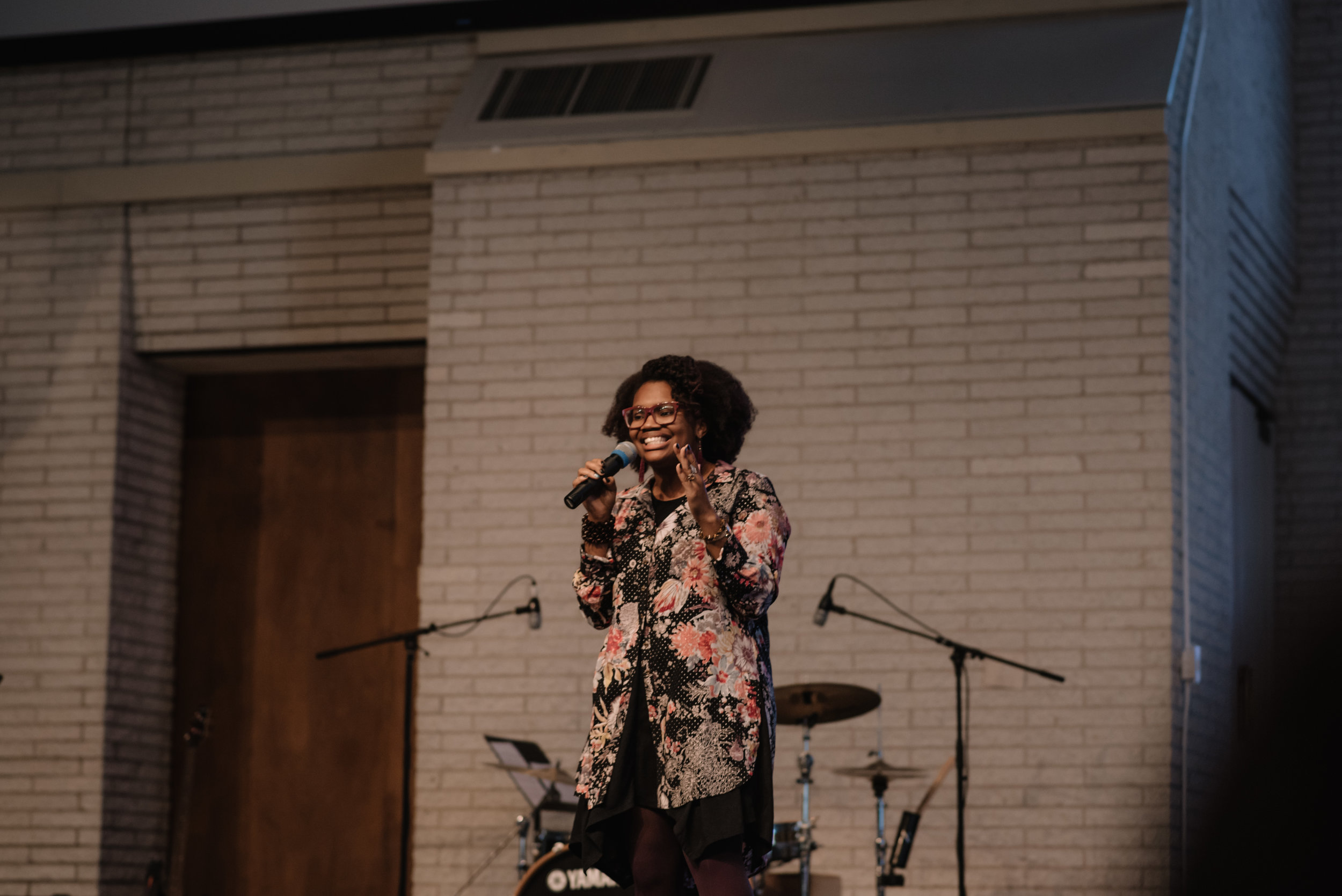
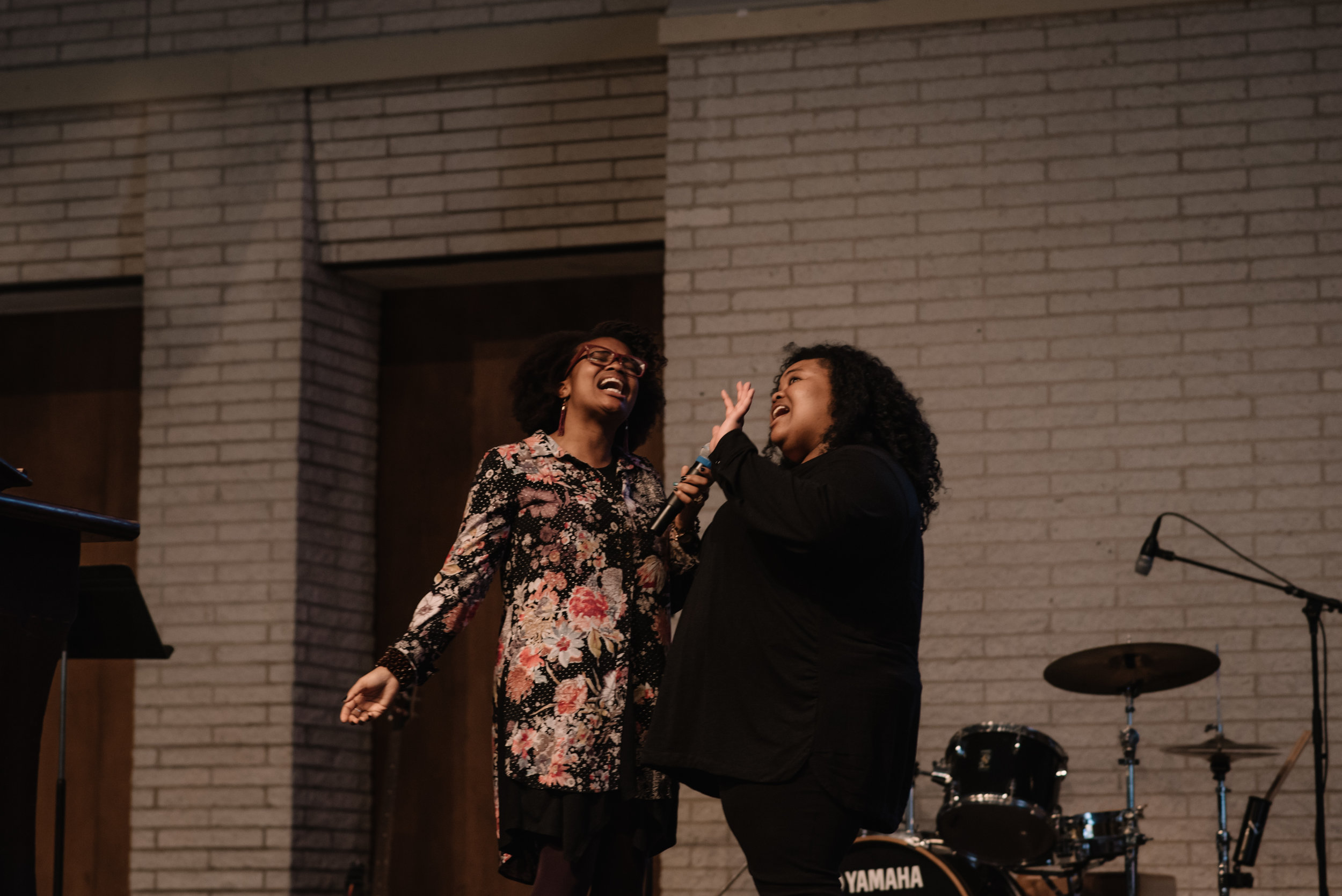
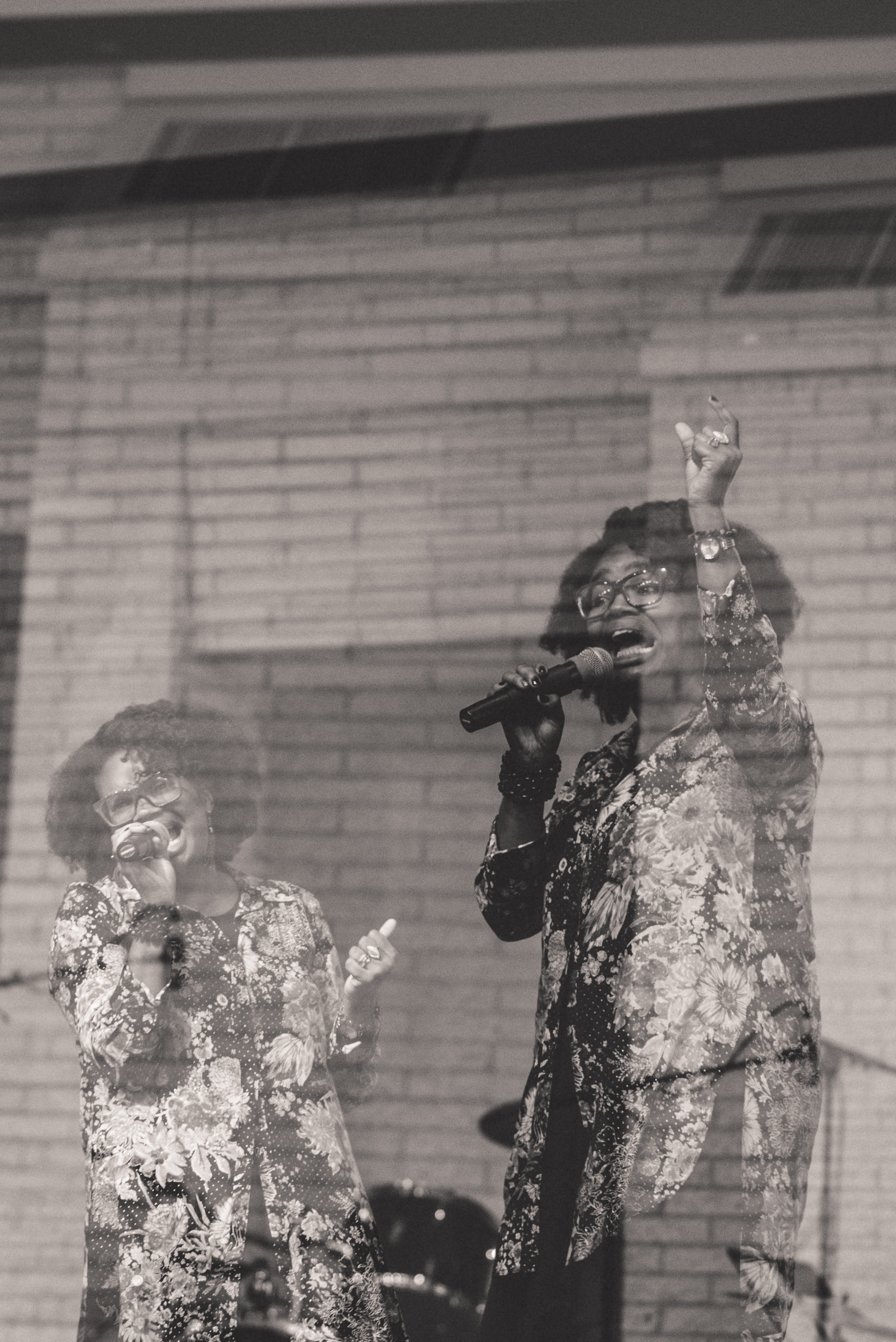
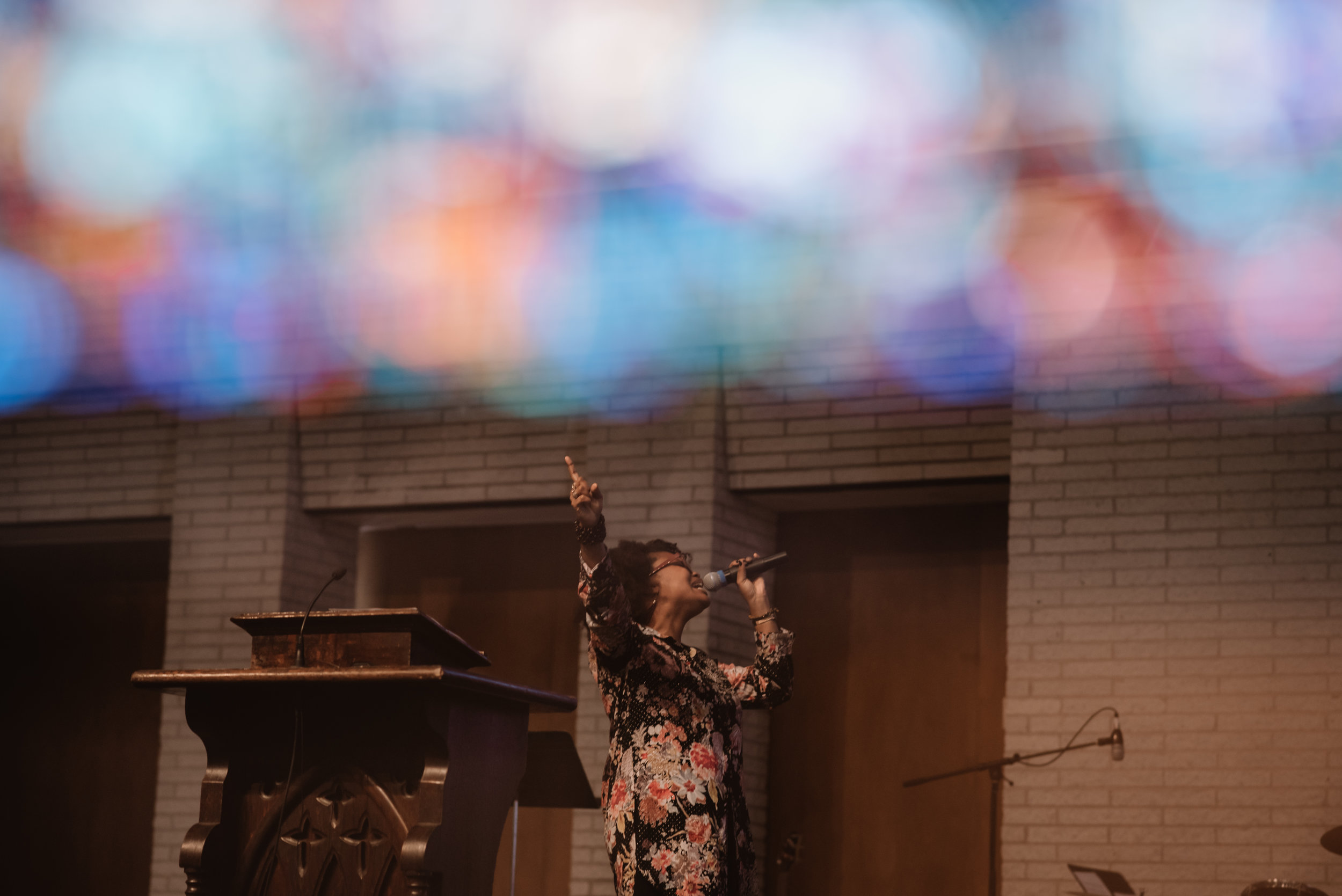
November 15 through 17, Covenant hosted several events on campus intended to foster conversations about race, including two chapel talks and a panel discussion.
Dr. Christina Edmondson, the Dean of Intercultural Student Development at Calvin College, gave a chapel talk on November 15, titled “Apostle Paul and a Polarized Nation.” She spoke about Paul’s preaching to the Athenians and his ability to exercise cultural appreciation and humility to preach the gospel to a pagan, polarized culture, while he was also not afraid of “transformational conflict” to address sins within the church. She warned listeners against “cultural superiority” as a pagan notion, but that “we are no better than anyone else and a true biblical gospel preaches that…because it is a gospel that is catholic and universal.”
Michelle Higgins, a Covenant alumna who has an MDiv from Covenant Theological Seminary, spoke in chapel on “The Rich Heritage and Theology of Black Gospel Music.” After singing “His Eye Is On the Sparrow” with her sister, Mary, Higgins spoke about gospel music, worship, and norms set by someone other than God. “Often the most traditional Christian communities seek to preserve a majority cultural norm over the tenants of worship, and freedom and liberty in the scriptures,” Higgins said. Gospel music speaks to the fact that our bodies are integral to worship, and we need a broader community, and it helps give words to our pain, Higgins said.
Edmondson and Higgins, along with Ekemini Uwan, who has an MDiv from Westminster Theological Seminary, hosted the podcast Truth’s Table. Uwan described themselves as “midwives of culture for grace and truth” and “Black Christian women who love truth and seek it out wherever it leads us.” In the podcast, these women share their perspectives on everything from pop culture to the church to politics.
A intergenerational panel discussion, called “Protest and Reconciliation in Love” featured Edmondson, Higgins, Uwan, Joan Nabors, the second African-American student to attend Covenant and later helped start New City Fellowship, and Dr. Alicia Jackson, professor of history.
Dr. Elissa Weichbrodt, professor of art, moderated the discussion. She accepted a few audience questions, but told the packed room “the primary purpose [of the panel] is to listen.”
The discussion ranged from questions like, “What has hindered racial reconciliation?” to the topic of truth-telling.
Weichbrodt said she and Christiana Fitzpatrick, Chaplain Grant Lowe, Associate Dean of Students Sarah Ocando, and Professor of Education Amy Bagby chose panelists carefully in order to have a breadth of experience and opinions represented. The women don’t necessarily approach these issues the same way, “but there’s still mutual appreciation and respect,” Weichbrodt said.
Edmondson, Higgins, and Uwan also spoke at a Theology on Tap event at The Camphouse and at Lee University while they were in town.
Weichbrodt said Christiana Fitzpatrick, director of Global Education, heard from a student earlier this semester about these events and asked if the three women would be part of a panel at Covenant.
“Nationwide, the need for a more frank and honest conversation about race has been growing,” Weichbrodt said. “There seems to be a kind of urgency that we talk about it.” Weichbrodt also said considering the P.C.A.’s 2016 overture on race and classroom discussions like the ones in her Race and American Art class, the events dovetailed with the conversations already going on on campus.
Weichbrodt said there was also a desire to serve and affirm black students in addition to educating majority students.
Abi Ogle (’18) attended the Theology on Tap event as well as the Covenant chapels and panel discussion. She is also part of Weichbrodt’s Race and American Art class.
Ogle recognizes some might be anxious about these discussions but believes it is important to talk about these issues. “As students we need to be brave and talk to each other but also to those above us,” Ogle said. “We need to say this is not just the professors shoving this down our throats but we’re called to this.”
